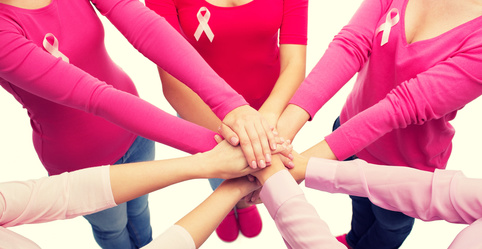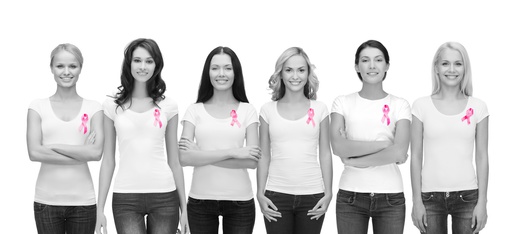Cancer Rehabilitation Program
Our comprehensive breast cancer recovery program is designed to alleviate the physical impact of surgery and cancer treatment to quickly restore functional mobility.
• Lymphedema risk assessment and treatment
• Pre and post surgical baseline measures
• Assessment and coordination of compression garment fitting
• Individually tailored exercise program to improve motion and strength
• Reduce scar tissue formation and pain
Breast Biopsy
Special imaging machines can take multiple, standard two-dimensional (2D) digital mammograms. Computer software combines the 2D X-ray images into a three-dimensional (3D) image (called breast tomosynthesis). Radiologists must have special training to read these 3D images.
Breast tomosynthesis is not a substitute for 2D mammography. It is done in combination with 2D mammography.
A breast tomosynthesis machine provides both a standard 2D digital mammogram and an enhanced 3D image based on the 2D images. All of the X-rays are taken on the same machine so a woman getting breast tomosynthesis, in combination with a standard mammogram, stays in one place while all of the images are taken.
Nurse Navigation for Breast Care
The Nurse Navigation Program provides education and emotional support for patients, as well as their family members, serving as a liaison between the patient and their treatment providers. Patients can rely on the timely delivery of diagnostic, treatment, and follow-up services, which are key components of successful recovery with assistance from the nurse navigator. Our Nurse Navigators are certified and have specialized training in breast imaging and oncology. Your Nurse Navigator will guide you down the path to survival while providing you with the support and resources you need to fight cancer. At Crouse Health our breast care nurse navigator is Nicole Montondo, RN, OCN who can be reached at 315/952-7482. And our breast care nurse navigator at St. Joseph’s Health is Jennifer Michales, RN, OCN who can be reached at 315/575-6295.
Medical Oncology
Our medical oncologists provide high quality, compassionate, patient centered care. Individualized treatment plans are put in place to provide the best possible outcome. Our team includes many clinicians with specialized knowledge and training such as nurse practitioners, physician assistants and oncology certified registered nurses, social workers, a registered dietician and a cancer rehabilitation expert. Hematology Oncology Associates of Central New York has earned the Quality Practice Initiative (QOPI) Certification from the American Society of Clinical Oncology and is one of nine cancer practices in the United States to earn accreditation from the Commission on Cancer as an Oncology Medical Home.
Radiation Oncology
Radiation oncology treatment services are provided by, or referred to radiation oncologists that are board certified or in the process of board certification at their initial survey. The center has been accredited either by the American College of Radiology, Radiation Oncology Practice Accreditation (ACR), American Society for Radiation Oncology, Accreditation Program for Excellence (ASTRO-APEx) for the American College of Radiation Oncology (ACRO) or has a quality assurance program in place, and the breast cancer quality measure endorsed by the National Quality Forum (NQF) for radiation.
High Risk Assessment
Routine breast cancer screening is important for all women, but even more so for those at higher risk. If you are at higher risk of breast cancer, you may need to be screened earlier and more often than women at average risk. A woman is considered at higher risk if she has one factor that greatly increases risk or several factors that together, greatly increase risk. The health care providers at Breast Care Partners may use different tools to assess your risk and help you make a personalized breast cancer screening plan.
Genetic Testing
Hereditary Cancer is due to inherited genetic changes called mutations. People who carry these genetic changes are born with them. They are then passed down through generations by inheriting the mutated gene. There are many different genes known to cause hereditary cancer. It is important to identify families that have inherited gene mutations because they are at a much higher risk to develop cancer.
The majority of cancers occur in people at an older age with little or no family history. Those cancers are called sporadic and occur by chance. Although many people have a family history of cancer, less than 10% of cancer is hereditary. People with hereditary cancer are more likely to have more than one cancer and their cancer often occurs at an earlier age.
Specific guidelines have been established by the NCCN (National Comprehensive Cancer Network) to help identify people who are candidates for genetic testing. Some red flags include:
• breast cancer before age 50
• multiple cancers on the same side of the family
• ovarian cancer at any age
• male breast cancer at any age.
Most insurance companies follow the NCCN recommendations for testing, so the test is usually covered by insurance if you meet the designated criteria established by the NCCN. Your health care provider will explain if you are a candidate for the test.
Genetic testing is done using a blood or saliva sample. The test looks for mutations that cause an increased risk for cancer. These results will help determine options for cancer screening and prevention. Patients with hereditary cancer risks have many options available to help manage their risks. These options include but are not limited to:
• Increased Surveillance (close and continuous observation and testing).
• Chemoprevention (the use of drugs to prevent the development of cancer).
• Risk reducing surgeries if available.
Survivorship Program
Following completion of cancer chemotherapy, our clinical staff will provide patients with support, education and resources to assist in survivorship. Our goal is to help patients in their understanding the treatment received, recommendations for follow up and to strive for maximal wellness. A written treatment summary and follow up care plan is provided. We have several services available to patients during and after treatment including cancer rehabilitation, counselors to discuss return to work, fear of recurrence, intimacy and body changes, as well as nutrition and wellness. In addition we provide patients with a list of community programs that may be helpful to you in your journey to optimal wellness.
Social Work
Hope and confidence are needed to counter the emotional drain on men and women who must deal with cancer. From surprise to denial, anger to fear, uncertainty to despair, the emotional reaction to cancer can take their toll on marriages, relationships, and livelihoods. Support groups can help patients, caregivers and family members share their experiences, regain control and get on with their lives. We urge you to consider joining a support group. All of our referral support groups are free and open to the public. See our list!
|

